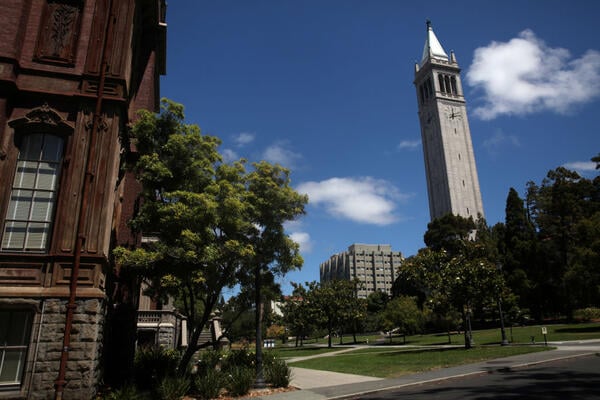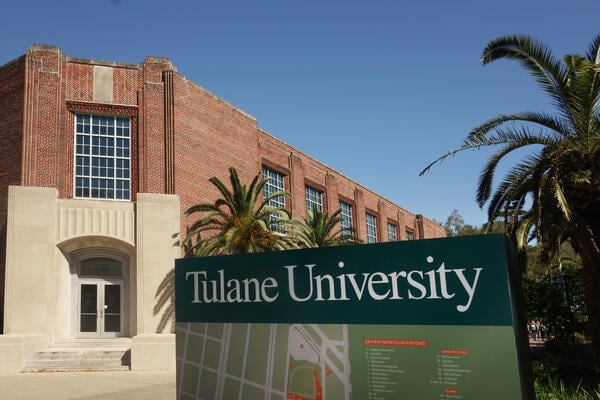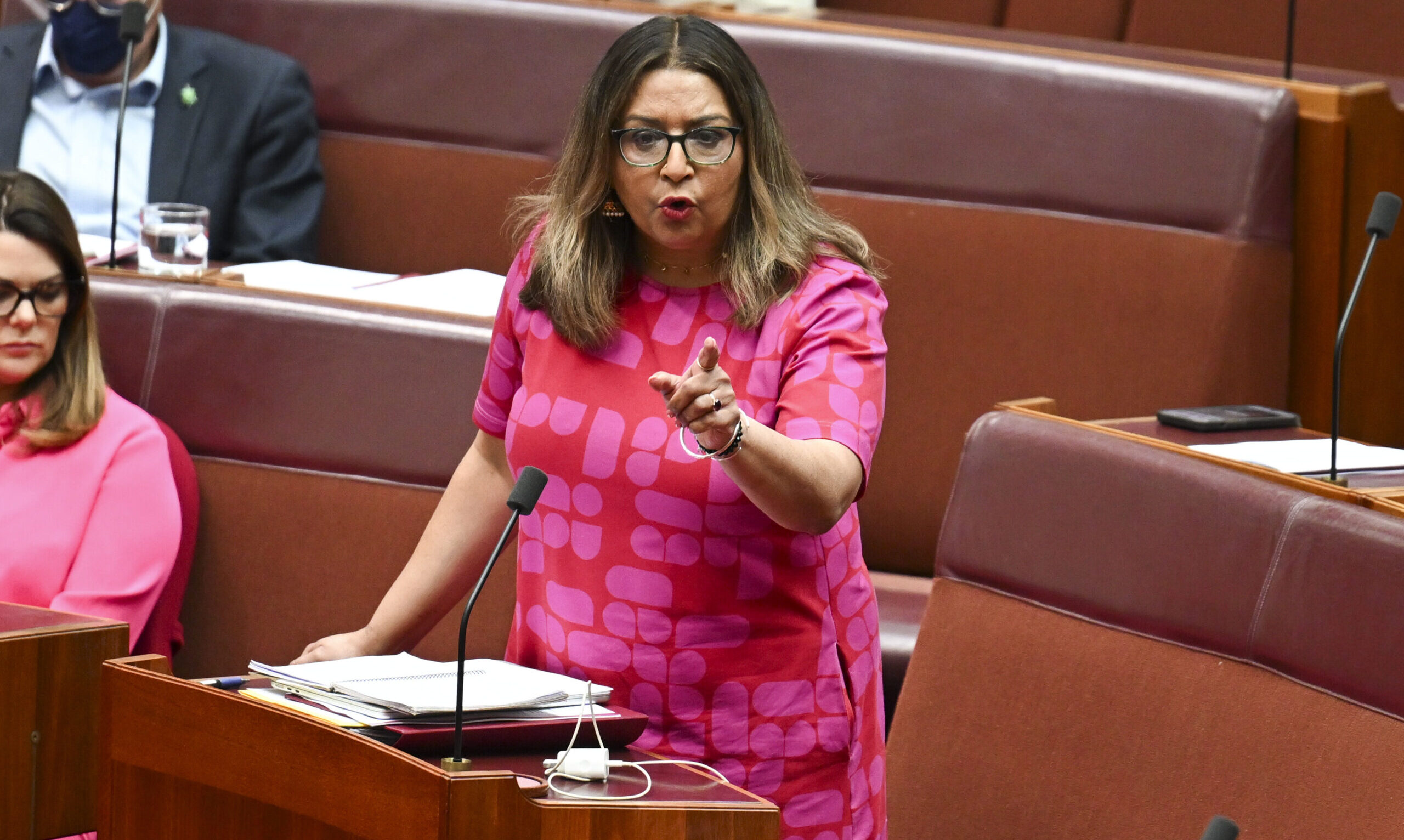Two months after the U.S. Supreme Court granted public school parents the right to withdraw their children from materials and discussions on LGBTQ+ issues and other subjects that conflict with their “sincerely held religious beliefs,” conservative leaders in California are predicting schools will be swamped with opt-out demands.
That hasn’t happened yet, but attorneys agree that this latest escalation of the culture wars will likely cause turmoil, confusion, and years of litigation, largely because the court offered no guidance on how opt-out requests should be handled, how religious belief claims can or should be verified, and how schools should handle potential logistical issues.
“There is a lot of trepidation about how to handle this issue in a way that is legally compliant and doesn’t trigger a backlash from one side of the issue or the other,” Troy Flint, a spokesperson for the California School Boards Association, told EdSource via email Saturday night.
“Superintendents have concerns about how to make a fact-specific determination regarding parent requests, and we have heard of districts getting threats of litigation from both sides,” he said.
LGBTQ+ advocates and defenders of the state’s progressive school standards are threatening discrimination lawsuits if opt-outs are granted, Flint said. Parents are threatening to sue if they aren’t granted immediately.
In most districts, he added, leaders “are hesitant to address this publicly for fear of attracting more scrutiny and making the issue even more difficult to manage.”
A leading academic on education law said that while the Supreme Court decision was based on parental objections to LGBTQ+ books and lessons, the religious opt-outs are likely to have a broader reach.
“It is deeply misguided for people to believe that this case is only about LGBTQ+ and equality,” Yale Law School professor Justin Driver told EdSource. The decision “sweeps, given the prevalence of deeply felt religious objections, to lots of material,” he said.
It could “affect everything from reading to science, to literature to history. It’s difficult to overstate the significance of the decision,” Driver said. “Some people think Bert and Ernie are gay. Is ‘Sesame Street’ now suspect?”
California, for instance, requires students to learn the history of gay people fighting for civil rights and the story of the country’s first openly gay elected official, Harvey Milk. The San Francisco supervisor was assassinated in 1978 and posthumously awarded the Presidential Medal of Freedom by former President Barack Obama.
Flint said that parents “in at least one district have hinted at trying to expand the opt-out requests to other types of instructional materials.” He did not identify those materials.
Meanwhile, as school administrators ponder their next steps, firebrand social conservatives are seizing the moment that the nation’s highest court created.
“There should be opt-outs. There are things that go against what God laid down,” pastor Angelo Frazier, of Bakersfield’s RiverLakes Community Church, said of what’s taught in California schools.
“It’s not education. It’s ‘You can touch me here.’ It’s very suggestive and inappropriate.” He said the ruling was a relief to frustrated parents in his congregation. “It gives them breathing room.”
The leader of a Fresno-based Christian group, long involved in parental rights advocacy, said the state is no longer in charge of what children learn in school.
The ruling shows that “parents are the ultimate determination of whose values get taught to the child,” said Greg Burt of the California Family Council. “We’re now in charge of deciding what we think is good and what we think is not good.”
But as opt-outs begin to play out across California’s more than 10,000 public schools as the 2025-26 academic year opens, the only certainty from the case, Mahmoud v. Taylor, is that uncertainties abound — and may for years.
They include:
- Can or should parents file blanket opt-out requests stating they want their child removed from any and all instruction about LGBTQ+ topics, and leave school personnel to sort it out? Or should schools ask parents to review reading lists — often available online — and let parents flag those items to which they object?
- What do school leaders do with students whose parents opt them out of a class? Their class time still needs to be used for instruction. Where do they go?
- Who watches or instructs the youngest of removed students, who can’t be left unsupervised? Some of the books cited in the Supreme Court case, including ones about a child’s favorite uncle marrying a man and a puppy getting lost at a Pride parade, are used in kindergarten and even transitional kindergarten classes.
- Will school districts need to budget money to defend lawsuits from parents whose opt-out requests may be denied?
- Can parents even attempt to opt out their child from exposure to an LGBTQ+ teacher, or a teacher who displays a Pride flag in a classroom?
Lawyers and academics interviewed for this story said that Justice Samuel Alito’s decision, joined by the court’s five other conservatives, offered little guidance on how opt-outs should work.
Mahmoud v. Taylor happened because the Montgomery County schools in suburban Maryland created an opt-out program to appease parents who objected to the teaching of LGBTQ+ materials on religious grounds. But the program ended in less than a year. Alito noted in his decision that school officials found that “individual principals and teachers could not accommodate the growing number of opt-out requests without causing significant disruptions to the classroom environment.” Parents then sued.
Focusing largely on principles of religious freedom, Alito’s decision doesn’t specifically address how opt-outs might work given the Maryland situation, or how claims of a sincerely held religious belief might be evaluated.
The high court has long recognized the rights of parents to “direct the religious upbringing of their children,” he wrote, a principle at the case’s core.
But in a dissenting opinion, Justice Sonja Sotomayor predicted opt-outs would cause “chaos for this nation’s public schools.”
Giving parents the chance to opt out of all lessons and story times that conflict with their beliefs “will impose impossible administrative burdens,” Sotomayor wrote. It threatens the very essence of public education.
“The reverberations of the court’s error will be felt, I fear, for generations.”
Opting out in California
Conservative groups in California opposed to LGBTQ+ themed teaching materials are generating letters and emails to school districts for parents to use to demand that school leaders proactively remove children from classes where there might be any mention of gay or transgender people, same-sex marriage and other related topics.
A nonprofit Riverside County law firm, Advocates for Faith & Freedom, created one such letter, calling for children to be removed from any teaching involving “gender identity, the use of pronouns inconsistent with biological sex, sexual activity or intercourse of any kind, sexual orientation, or any LGBTQ+ topics” so parents can raise children “in the fear and knowledge of the Lord.”
The letter gives principals 10 calendar days to respond in writing. Lack of a response “will be considered a denial” that will cause parents to “proceed accordingly.”
Erin Mersino, an attorney at the firm, said via email, “responses were just starting to come in,” and that it was too soon to discuss the letter’s effectiveness. Other groups are circulating at least four similar opt-out templates or email forms.
The 10-day response demand in the nonprofit’s letter “is insufficient in my opinion,” said Mark Bresee, a La Jolla attorney specializing in education law.
Bresee also questioned if “a blanket, year-long ‘opt-out’ demand” is consistent with Alito’s decision, noting that the justice wrote that the “religious development of a child will always be fact-intensive. It will depend on the specific religious beliefs and practices asserted, as well as the specific nature of the educational requirement or curricular feature at issue.”
It’s unclear how far and fast those letters are circulating. Some school officials said they have received a few opt-out notices.
Conservative activist Brenda Lebsack, a Santa Ana Unified School District board member, said mass opt-out requests are unlikely to come until school districts themselves notify parents of the new right the court granted. “Opt-out forms should really be coming from the schools because if you’re getting opt-out forms from all these different law firms, and they’re all different, that could get really confusing,” she said.
At the Manteca Unified School District in San Joaquin County, Assistant Superintendent Victoria Brunn said late last week that only one “opt-out request has been received so far. She said the parents who made it were told it would be granted.
A spokesperson for the Turlock Unified School District in Stanislaus County said it had received a single inquiry about the opt-out process and created a standard form for requests, but that no requests had been received. Parents can either use the form or email a teacher, citing “specific instructional content” a student should not receive, according to a copy provided to EdSource.
“Teachers can also provide notice of upcoming curriculum,” the spokesperson wrote in an email.
At the Hope Elementary School District in Santa Barbara County, Superintendent Anne Hubbard created an opt-out form. As of Friday, it had been used once to opt out two children in the same family, she said.
Last week, the board of the 85-student Howell Mountain Elementary School District in Napa County canceled plans to create an opt-out form after community objections.
“Howell Mountain Elementary respects and values the LGBTQ+ community. We will not be adopting any type of opt-out form that specifically targets LGBTQ+ curriculum,” Superintendent Joshua Munoz said in a statement. Instead, the district will remind parents annually that the right to opt out exists, but will not cite any specific curriculum.
The Press Democrat reported that among those who spoke to the board was a St. Helena High School junior who’d attended Howell Mountain.
“When I was in seventh grade, I realized that I liked girls,” she said. “In school, the times that we were taught about LGBTQ+ people would remind me that I was not alone. I was not a freak or an alien. I was just me. And I could still do anything I wanted in my life.”
In San Francisco, Mawan Omar, the parent of a sixth grader, told EdSource he intends to opt his son out of LGBTQ+ materials because the teaching contradicts his family’s Muslim faith.
Omar said his son, Hezma, objected on his own to an LGBTQ+ lesson in elementary school because it was contrary to what he had learned from the Holy Quran. “He just didn’t want to be around it because he knows our religion,” Omar said. After what he described as a dispute with the school’s principal, it was agreed informally that Hezma would be allowed to leave any classes involving similar materials.
Now, Alito’s decision, Omar said, is gratifying. “We knew all along we were right.”
But Lebsack, who focuses on transgender issues and has formed an interfaith coalition primarily around them, said Alito’s decision isn’t enough.
“I think Mahmoud versus Taylor is throwing us crumbs,” she said in an interview. “I mean, I’m grateful for it, but it needs to go much further than that.”
Lebsack, a special education teacher and former Orange County probation officer, claimed the California Department of Education is ripe to be sued under the First and 14th amendments for “compelling public school students to accept and affirm extremist ideologies of unlimited gender identities” and for “bringing extremist forced teachings into K-12 public education.”
Asked to respond to Lebsack’s assertion, a spokesperson for the state Education Department directed a reporter to guidance posted online about Alito’s decision. It states, in part, “The California Department of Education and California law continue to promote a safe, fair, and welcoming learning environment in all schools. It is important to note that Mahmoud does not invalidate or preempt California’s strong protections for LGBTQ+ youth from discrimination, harassment, and bullying.”
The goal: Banning books?
Other conservatives said they see a path where Alito’s decision could lead to the removal of books and teaching they oppose by overwhelming schools with opt-outs to the point where the best option is to remove the materials.
“If there are so many people who want to opt out of this curriculum, maybe we should stop teaching it,” said Julie Hamill, an attorney and president of the California Justice Center. School leaders, she said, should be reflecting on whether they are “doing something wrong as a district and educational entity. Those are questions that are not being asked right now. It’s very obvious that’s what needs to happen.”
Sonja Shaw, a Chino Valley Unified School District board member running for state superintendent of public instruction in next year’s election, said she wants opt-outs to “overtax the system to where they just give up, and they stop teaching this stuff.”
If so many opt-outs were filed that books are removed from curricula, that would help, said Burt of the California Family Council, which has urged parents to flood districts with opt-outs. “We’re advocating for good books in school, and we think these are bad books, so we’re not going to be sad if we see them go.”
But an anti-censorship advocate said that would amount to book banning by a different name.
“I’m not at all surprised that this is their plan of attack,” Tasslyn Magnusson, senior adviser to the Freedom to Read team at PEN America, an anti-censorship group, said of conservative activists. “These are books about families. These are books about how we experience the world, and they’re beautiful and well written,” she said. “Remember that it’s important for kids to have a variety of materials in front of them that resonate with their lives and their experiences.”
Another impact of the opt-outs will be how LGBTQ+ students and students from families with LGBTQ+ members will react when classmates leave and when teaching materials reflecting their lives are presented.
That could make “a child feel they’re not only different, but that they’re not accepted or that they should be ashamed of the family that they have,” said Jorge Reyes Salinas, a spokesperson for Equality California, a civil rights group. Although the opt-outs promise to be disruptive, he said, they won’t end the state’s use of an inclusive curriculum. “We’re talking about a very small population of parents that are ignorant and full of hate.”
The presidents of California’s two largest teachers unions both said educators are not going to fold under pressure created by the high court’s decision.
“The role of the public school is to help students develop the critical thinking skills and knowledge necessary to engage in a pluralistic democracy,” said Jeff Freitas, president of the California Federation of Teachers. “We cannot have individuals dictating what is the good of the public. It’s also important that our public schools avoid over-compliance and refuse to capitulate to the weaponization of this decision.”
David Goldberg, president of the California Teachers Association, said that teachers “will obviously follow the law, but we want to make it clear to our members that there are other laws in California around kids’ ability to learn about their own identity, cultures, or all kinds of identities. We’re going to still honor kids’ ability to learn about their own identity and all kinds of identities.”
Goldberg also said it would be a mistake for school administrators to place the burden of opt-outs on teachers. “Teachers are overwhelmed already, just getting through the curriculum,” he said. Opt-outs are “a compliance thing that districts are going to need to figure out.”
The Scopes Monkey Trial
The country has a long history of science clashing with religion.
Driver, the Yale law professor, noted that in a 1987 decision, the U.S. Court of Appeals for the Sixth Circuit overturned a lower court that ruled fundamentalist Christians could remove their children from public school lessons that depicted women working outside the home, which they argued conflicted with their religious beliefs.
Now, following Alito’s decision in the Maryland case, the losing argument in that case could be successful, Driver said. “It seems to me the Mahmoud versus Taylor decision empowered these sorts of objections to potentially carry the day.”
Alito’s decision also came 100 years after the landmark court case on the teaching of evolution in public schools — the epic clash of science versus religion known as the Scopes Monkey Trial that pitted legendary lawyers Clarence Darrow and William Jennings Bryan against each other.
Jennings, hired to prosecute a high school biology teacher, John Scopes, for teaching evolution against state law, won. But Tennessee’s Supreme Court later overturned Scopes’ conviction, ruling that a state law banning the teaching of evolution in public schools was unconstitutional.
But it didn’t end the debate over teaching science in the face of religious beliefs, said Pepperdine University law and history professor Edward Larson, author of a Pulitzer Prize-winning book on the trial. When it ended, “school districts all over the country and some states banned the teaching of the theory of human evolution,” he said.
Even when religious objections were later banned, “a series of state laws and local actions calling for balanced treatment of either teaching creation science, along with evolution, or later intelligent design” followed, Larson said. Several states, including Alabama, require disclaimers in biology books stating evolution “is just a theory,” he said.
“The issue of evolution in public schools remains a flash point,” Larson said. “It has been for a hundred years, it still is today.”
As the Alito decision plays out in the coming years, Larson said, “Schools may want to force people to provide all sorts of evidence” to prove their sincerely held religious beliefs. “But I’m thinking that most won’t feel it’s worth their time to get too engaged,” he added.
“That’s just inviting trouble.”
Get stories like these delivered straight to your inbox. Sign up for The 74 Newsletter












